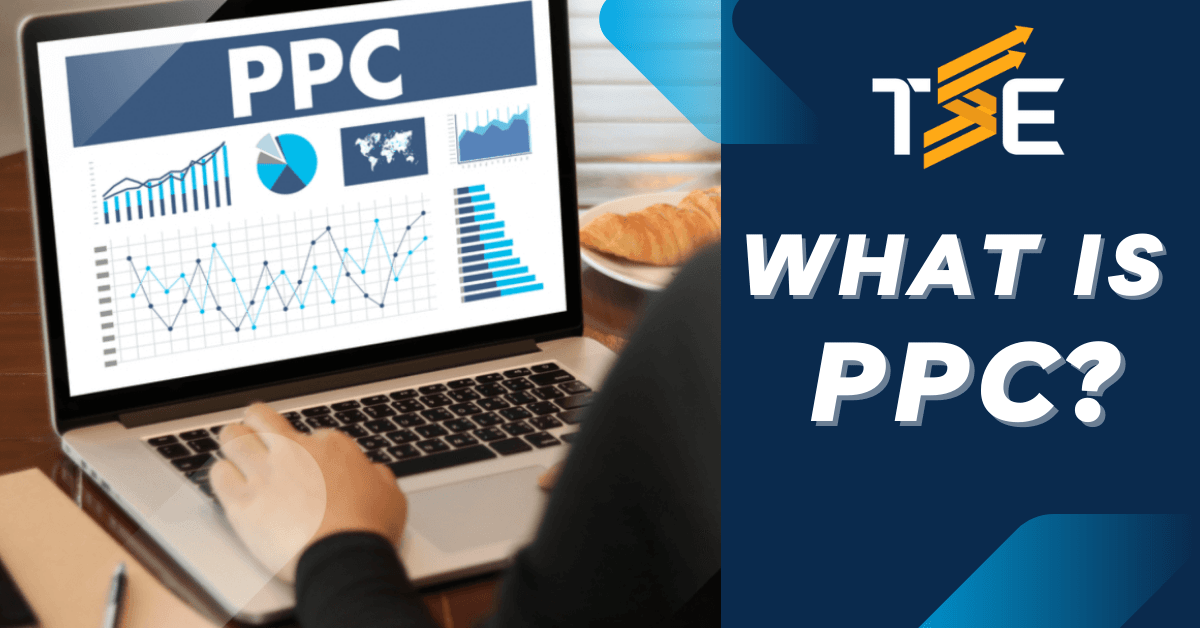Seeking a way to know everything about PPC advertisement in a single go? Your search is over because you have come to the right place. If you are a newbie and entering the world of digital advertisement for the first time, you can get complete and authentic information about pay-per-click advertising, PPC management, paid search marketing, and PPC campaigns here. Discover the types, models, importance, pros, and cons of pay-per-click campaigns below:
Pay Per Click aka PPC:
An advertisement model in which advertisers pay a fee each time whenever their published ad is clicked. It’s one of the best ways to increase the number of unique visitors to your website ultimately uplifting the number of leads generated. A multitude of businesses use the PPC advertisement model to cater to their needs of increasing website traffic without any complicated search engine optimizations.
In this model, by paying a small fee or bidding for a specific spot, your website can be shown at the top spot of Google search results with a sign of ad or sponsored on them. This way can earn your website new visitors as persons often click on the top 3 results shown. At every click, you have to pay a small fee and gain maximum benefits by spreading your website name among your targeted audience.

If your PPC strategy is winning one, the fee you pay at every click will never hurt you because a new visitor landing on your website is worth way more than that. However, there are a lot of things to do to make a winning PPC campaign. From researching the right keywords, finding the sub-keywords, organizing them into the correct form, and setting up the right landing pages that are perfect for conversions. If your landing pages are convincing and satisfy the needs of the targeted audience, there are a huge number of benefits you can reap from PPC campaigns.
Is Google Ads a PPC System?
Yes, google ads are one of the most authentic, reliable, and easy-to-use pay-per-click advertising systems. This PPC campaign enables you to create ads that appear on Google properties and Google search engines. In this model of paid search marketing, users bid on keywords and pay some fee for every click on their advertisement. Every time a user searches for something, Google digs into the sea of advertisers and selects some winners to give them a valuable space in search results. Winners are selected due to many factors such as keyword relevancy, market target, and highest bidding. This paid search marketing system helps businesses boost their business revenues. You can reach your targeted audience by spending the amount that fits your budget.
Types of PPC Models
Primarily based on keywords, there are a few types of pay-per-click models. Companies relying on pay-per-click advertising work to find relevant keywords to their products and services and analyze those keywords to manage them properly for a winning strategy. Investing in keywords that are relevant to your products or services can generate a higher number of clicks for your website. Ultimately boosting your business revenues. There are two types of PPC models:
- Bid-Based Model
- Flat Rate Model
Bid Based Model:
In this model, the advertiser bid for the maximum amount they are willing to pay for a spot in google search results. This auction is undertaken by publishers by using some automated tools. This auction runs every time whenever a visitor triggers the ad spot. The auction winner is generally determined by the rank, not the total amount offered.
Flat Rate Model:
In this model of paid search advertising, the advertisers pay a publisher a fixed fee for each click by the user. Different rates are applied for the different areas of search results. Publishers are usually open for negotiations regarding prices they initially offer. If an advertiser offers a long-term or high-value contract, the publisher is very likely to lower the price.
How Does Pay Per Click Work?
Whenever there is a spot on a search engine for advertisement, instantaneously an auction takes place for a keyword. The bid amount and quality of the keyword with a combination of other multiple factors decide the winner of the auction. These auctions keep the gears of PPC moving. Whenever someone searches on Google, these auctions begin.
If advertisers are interested in showing ads related to the searched query, an auction is triggered based on keywords that are on the bid. Then, the ads that win the auction appear on the search result page. Advertisers use automated platforms like Google ads to participate in auctions and set up their ads as per where and when they want their ads to appear. Ease in management is offered through many automated platforms. Keywords are managed according to the location, product types, service nature, and other useful classifications.

Types of Keywords:
Keywords are also managed, researched, focused, and categorized according to their types. Every keyword must be allocated a match type, which describes the search query for which ads will show. There are almost seven types of keywords that match:
- Exact– Query must be exactly typed
- Exact (Close Variant)– Query includes misspellings or other variants otherwise it is typed correctly
- Phrase – Query typed in the correct order, with additional terms before or after the query
- Phrase (Close Variant) – Query misspelled with additional terms before or after the query.
- Broad– Query typed in any order but potentially shows ads for similar searches
- Modified Broad– Query typed in any order, but include terms containing plus sign
- Broad (Session-Based)–a broad match that takes into account other queries from the user’s search session
- Negative Keywords:
Negative keywords can be added to remove unqualified traffic. Someone who searches for something free is not willing to pay or buy something. The advertiser’s ad will not show when a query contains this type of term. For a company selling luxury products, cheap or low-price terms related may make good negative keywords.
Targeted Audience:
Groups of users segmented in various ways are called audiences. Recognizing your targeted audience is essential to publish your advertisement at the most relevant medium. Audiences are created upon specific page views, bounce rate, time spent on the website, pages per visit, and many other factors.
Types of Ads:
A few types of ads are given below:
- Expanded Text Ads
- Image Ads
- Product Listing Ads
Display Ad Images Sizes:
Google Display ads are utilized by advertisers to run Display Network campaigns. These ads show the content of millions of sites across the Display Network. Create a responsive ad that will automatically adjust the size depending on where it is shown or utilize the 19 standard image sizes below.
- 240 x 400
- 250 x 250
- 250 x 360
- 300 x 250
- 336 x 280
- 580 x 400
- 120 x 600
- 160 x 600
- 300 x 600
- 300 x 1050
- 468 x 60
- 728 x 90
- 930 x 180
- 970 x 90
- 970 x 250
- 980 x 120
- 320 x 50
- 320 x 100
Expanded Text Ads
After the creation of groups and selection of keywords, ads can be written Ads must include the targeted keyword theme, value propositions, and a call to action. Google Ads text ad structure and character limits are below:
- Headline 1 – Up to 30 characters (including spaces)
- Headline 2 – Up to 30 characters (including spaces)
- Description Line – Up to 80 characters (including spaces)
- Path 1 – Up to 15 characters
- Path 2 – Up to 15 characters
Excessive capitalization, punctuation, incorrect spelling, or misleading statements should not be included in the ad. The display URL will combine the root of the final URL with Path 1 & Path 2.

Product Listing Ads (PLAs)
Product Listing Ads are used in e-commerce PPC campaigns that contain product titles, images, and prices. These PLAs must be connected to a Google Merchant Center account.

Benefits of PPC Campaigns:
The PPC model is beneficial for both advertisers and publishers. For advertisers, the model is beneficial because it offers a chance to advertise products or services to a targeted audience who is actively searching. A well-designed PPC advertising campaign enables an advertiser to save a substantial amount of money as the value of each visit. For publishers, the pay-per-click model provides a primary revenue system.
Conclusion
It is concluded that PPC campaigns are beneficial for businesses as they are an effective way to drive business and get customers without field marketing. PPC management is not a difficult task but it’s not a piece of cake for everyone. Managing PPC campaigns requires serious skills, expertise, hands-on tools, and experience. For a newbie, it’s never been easier to run a PPC campaign with winning momentum, if it happens it may be a lucky incident. Here comes the role of the PPC agency.
These agencies are working for people to create and design winning PPC advertising campaigns that help them get maximum visitors to their websites. If you are a newbie, connect with a PPC agency to get their services because they are equipped with all the tools, techniques, and expertise required to design a winning pay-per-click advertising campaign.


